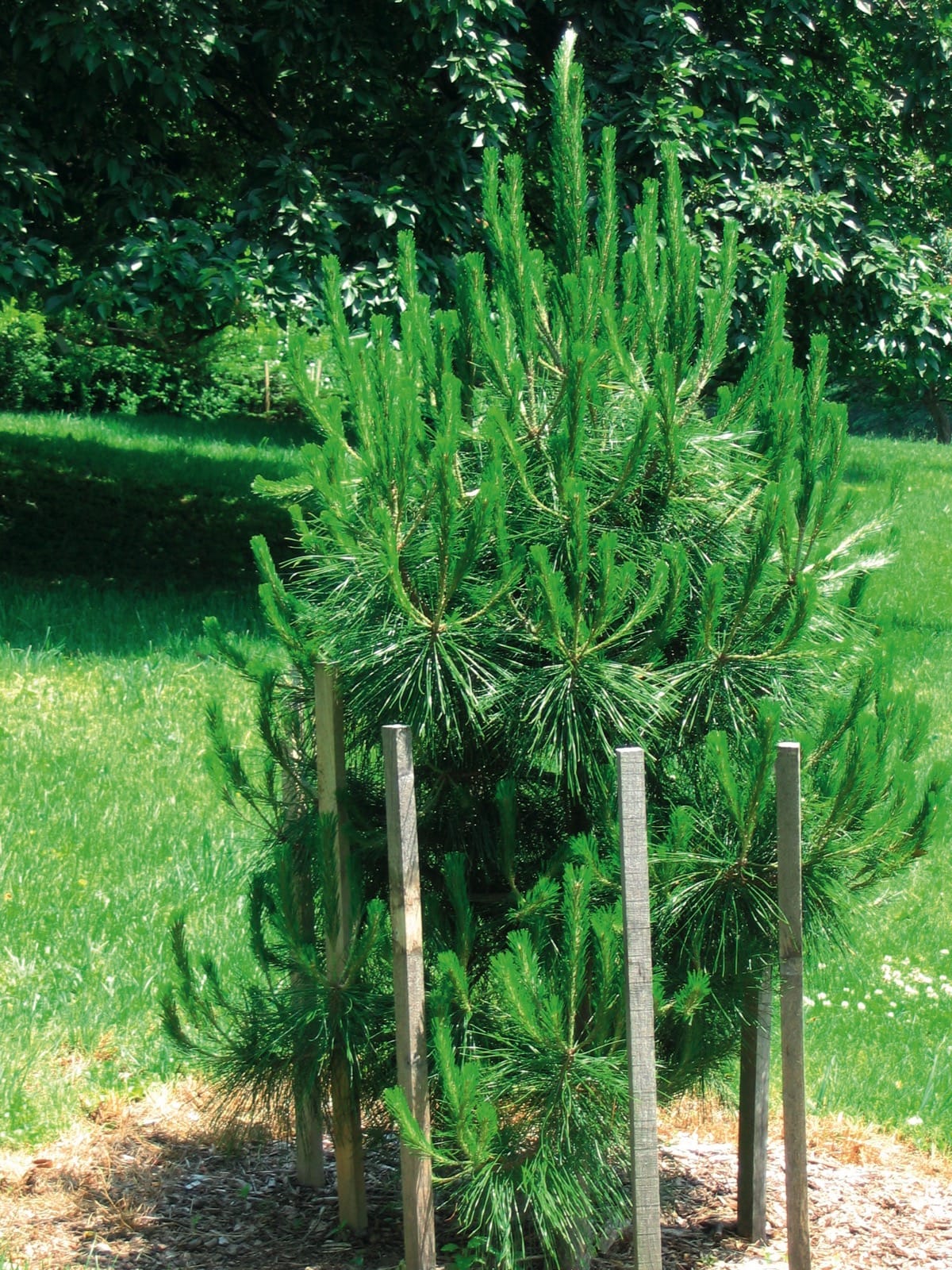Pinus henryi
Credits
Article from New Trees by John Grimshaw & Ross Bayton
Recommended citation
'Pinus henryi' from the website Trees and Shrubs Online (treesandshrubsonline.
Genus
- Pinus
- Subgen. Pinus, Sect. Pinus
Synonyms
- P. tabuliformis var. henryi (Mast.) C.T. Kuan
- P. tabuliformis subsp. henryi (Mast.) Businský
Other taxa in genus
- Pinus albicaulis
- Pinus arizonica
- Pinus armandii
- Pinus attenuata
- Pinus ayacahuite
- Pinus balfouriana
- Pinus banksiana
- Pinus bhutanica
- Pinus brutia
- Pinus bungeana
- Pinus canariensis
- Pinus cembra
- Pinus cembroides
- Pinus chiapensis
- Pinus contorta
- Pinus coulteri
- Pinus culminicola
- Pinus densata
- Pinus densiflora
- Pinus devoniana
- Pinus durangensis
- Pinus echinata
- Pinus edulis
- Pinus elliottii
- Pinus engelmannii
- Pinus eremitana
- Pinus flexilis
- Pinus gerardiana
- Pinus greggii
- Pinus × hakkodensis
- Pinus halepensis
- Pinus hartwegii
- Pinus heldreichii
- Pinus × holfordiana
- Pinus hwangshanensis
- Pinus jeffreyi
- Pinus johannis
- Pinus koraiensis
- Pinus lambertiana
- Pinus leiophylla
- Pinus longaeva
- Pinus massoniana
- Pinus maximartinezii
- Pinus monophylla
- Pinus montezumae
- Pinus monticola
- Pinus morrisonicola
- Pinus mugo
- Pinus muricata
- Pinus nelsonii
- Pinus nigra
- Pinus oocarpa
- Pinus orizabensis
- Pinus palustris
- Pinus parviflora
- Pinus patula
- Pinus peuce
- Pinus pinaster
- Pinus pinceana
- Pinus pinea
- Pinus ponderosa
- Pinus pseudostrobus
- Pinus pumila
- Pinus pungens
- Pinus quadrifolia
- Pinus radiata
- Pinus remota
- Pinus resinosa
- Pinus rigida
- Pinus roxburghii
- Pinus sabiniana
- Pinus serotina
- Pinus sibirica
- Pinus strobiformis
- Pinus strobus
- Pinus sylvestris
- Pinus tabuliformis
- Pinus taeda
- Pinus taiwanensis
- Pinus teocote
- Pinus thunbergii
- Pinus torreyana
- Pinus virginiana
- Pinus wallichiana
- Pinus wangii
- Pinus yunnanensis
This species is treated as a variety of P. tabuliformis in Flora of China (Fu et al. 1999c), and as a subspecies of it by Businský (1999); it is somewhat indistinct, though Farjon (2001, 2005a) maintains it as a full species. It differs from P. tabuliformis in its needles, which are never wider than 1 mm. Also, the cones are smaller (2.5–5 cm long, usually as wide as long when open), with a reflexed peduncle (as in P. sylvestris), and the seed scales have apophyses that are only slightly swollen. Fu et al. 1999c, Farjon 2005a. Distribution CHINA: Hebei, Hubei, Hunan, Shaanxi, Sichuan. Habitat Mountains between 1100 and 2000 m asl. USDA Hardiness Zone 6. Conservation status Lower Risk. Illustration NT603.
Pinus henryi was introduced to cultivation in 1996 under the collection number QLG 112 by a NACPEC expedition composed of personnel from several American and Chinese botanical gardens. They found it on a hillside in the Hong Shan, Shaanxi, from which all other trees had been felled, but which had evidently been floristically very rich (collection notes from USDA Germplasm Resources Information Network: USDA/ARS, National Genetic Resources Program 2008). Young trees are now growing in American collections and are rather striking in appearance, the new shoots forming ‘foxtails’ of dense, bright green needles. Specimens observed in 2006 at the US National Arboretum and the Morris Arboretum (both participatory in the NACPEC expedition) were 2 and 1.8 m tall respectively, growing vigorously and producing new leaders up to 60 cm long. By late autumn 2007 the USNA specimen had reached 4 m and was coning (R. Olsen, pers. comm. 2007). In maturity trees can be expected to become flat-topped, with a single straight trunk and reddish bark. The species has apparently not yet been introduced to Europe.

